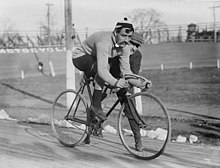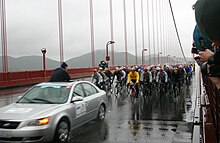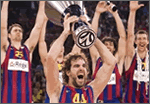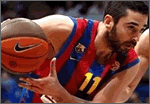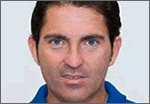Spicy sausage and Mushroom Fideu�
Serving Size: 4
5 oz Catalan spicy sausage or other garlic sausage (cut into1/2-inch)
1/2 lb mushrooms, quartered
3/4 lb noodle or angel hair pasta
2 medium tomatoes, peeled, seeded, and chopped
1 large green bell pepper, diced
3/4 lb onions, chopped
2 large garlic cloves, minced
2 teaspoons paprika
1 drop cayenne pepper
3 cup canned low-salt chicken broth
1/2 cup dry white wine
fresh parsley, minced
2 tablespoons olive oil
Preheat oven to 400°F. Heat olive oil in deep paella pan over medium-high heat. Add onions and garlic and cook until tender, stirring frequently, about 8 minutes. Add mushrooms and saute 4 minutes. Add paprika and stir just until gold, about 30 seconds. Add tomatoes. Simmer. Break pasta in half and add to pan. Cook until pasta is tender, stirring occasionally, about 8 minutes. Set pan in oven and bake until all liquid is absorbed , about 25 minutes. Sprinkle with parsley.
Catalan Salad
Serving Size: 1
Endive lettuce, washed, dried, separated into leaves, and broken into manageable size (this forms the bed of the salad)
Tomatoes, cut into slices or quarters
Sweet raw onion, cut into thin rings or slices (if the onion is very strong, it is soaked in vinegar and water for an hour before serving )
Green and red peppers, cut into thin rings
Green and black olives
Optional additions (or winter substitutes) are:
Radishes,
Celery stalk, cubed
Hard-boiled eggs, in rings or quarters
For a more substantial first dish, the salad may be added with bits of canned tuna or shreds of desalted cod fish. It may be surrounded by slices of sausage or accompanied by side platters containing a few sliced hams and sausages. The salad is sprinkled liberally with olive oil; lightly with vinegar and salt.
Spinach in Catalan Style
Serving Size: 6-8
1 1/2 lbs fresh spinach
1/2 cup Golden Delicious apples, peeled, cored, cut in 1/2-inch cubes
1/3 cup pine nuts
1/2 cup golden raisins (optional but use more apple)
6 tablespoons olive oil
Heat 2 tablespoon olive oil in a large pot over high heat, add apples and sauté until golden brown , about 3 minutes, add pine nuts and sauté 3 minutes. Add rest of oil to each pot and add raisins (if you did not use more apple) then stir to combine. Add spinach between pots, cover and cook just until gold (stir occasionally), season with salt and pepper and serve.
Escalivada
Servings Size: 4
1 1/2 lb eggplant, peeled and sliced
6 cups virgin olive oil for frying
5 tablespoons extra virgin olive oil
1 large onion, chopped
1 green bell pepper, peeled, seeded and quartered
8 ripe but firm plum tomatoes, peeled and seeded, cut in half
Black pepper to taste, freshly ground
Salt
For the vinaigrette sauce (whisked together):
1/4 cup extra virgin olive oil
2 tablespoons red wine vinegar
1 garlic clove, peeled and finely chopped
1 tablespoon finely chopped fresh parsley leaves
Black pepper to taste, freshly ground
Salt
Put the eggplant slices on some paper towels and sprinkle with salt. Leave them to drain for 30 minutes. Preheat the frying oil in a deep-fryer to 375°F. Fry the eggplant slices until golden brown, 7 to 8 minutes. Drain on paper towels and let cool. Let the frying oil cool completely, strain, and save for a future use. In a large casserole, heat 1 tablespoon extra virgin olive oil over a medium heat, then cook the onion until translucent, 6 to 7 minutes, stirring occasionally. Add the eggplant slices, bell pepper, tomatoes, and a sprinkling of salt and pepper. Mix gently. Pour the remaining 1/4 cup extra virgin olive oil over the vegetables and bake uncovered for 1 hour. Let cool, then serve with the vinaigrette poured over.

